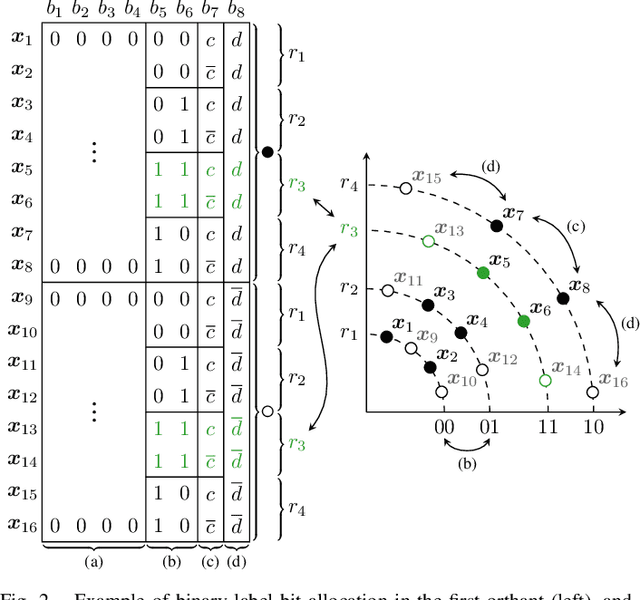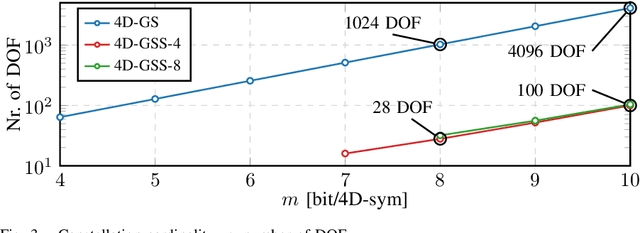Introducing 4D Geometric Shell Shaping
Paper and Code
Jun 07, 2022



Four dimensional geometric shell shaping (4D-GSS) is introduced and evaluated for reach increase and nonlinearity tolerance in terms of achievable information rates and post-FEC bit-error rate. A format is designed with a spectral efficiency of 8 bit/4D-sym and is compared against polarization-multiplexed 16QAM (PM-16QAM) and probabilistically shaped PM-16QAM (PS-PM-16QAM) in a 400ZR-compatible transmission setup with high amount of nonlinearities. Numerical simulations for a single-span, single-channel show that 4D-GSS achieves increased nonlinear tolerance and reach increase against PM-16QAM and PS-PM-16QAM when optimized for bit-metric decoding (RBMD). In terms of RBMD, gains are small with a reach increase of 1.6% compared to PM-16QAM. When optimizing for mutual information, a larger reach increase of 3% is achieved compared to PM-16QAM. Moreover, the introduced GSS scheme provides a scalable framework for designing well-structured 4D modulation formats with low complexity.
 Add to Chrome
Add to Chrome Add to Firefox
Add to Firefox Add to Edge
Add to Edge